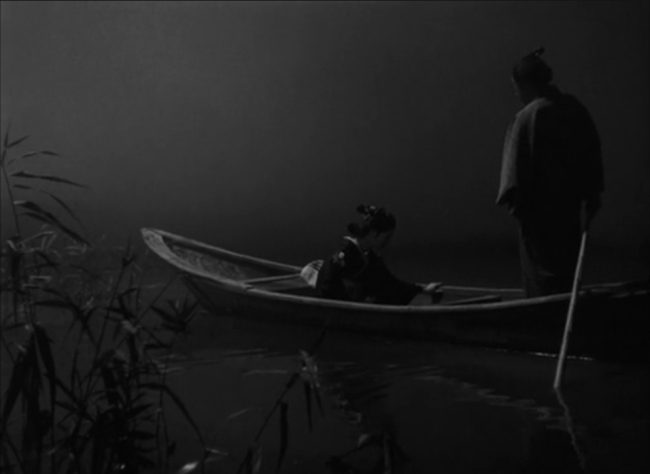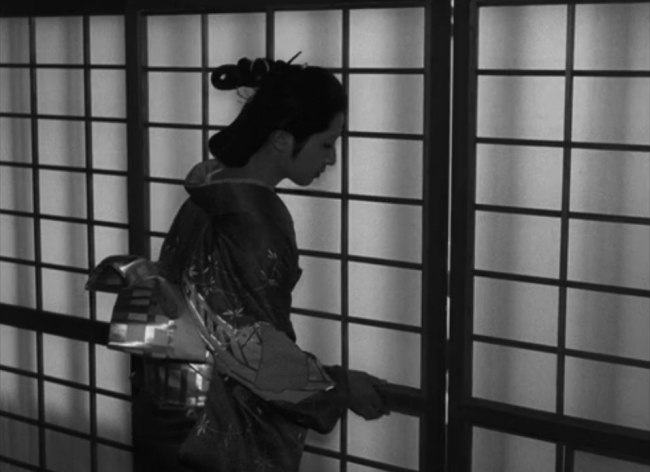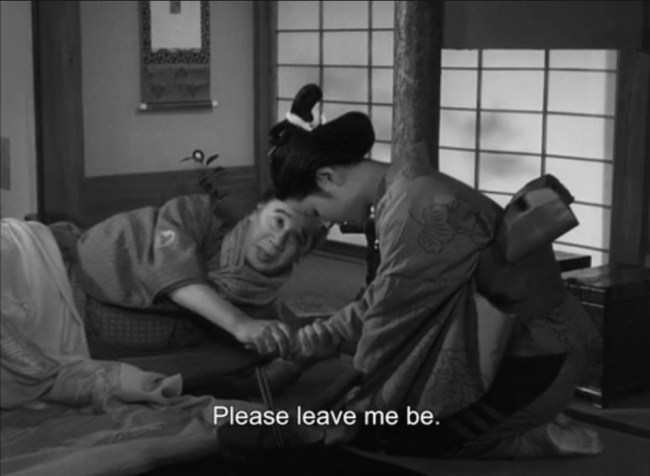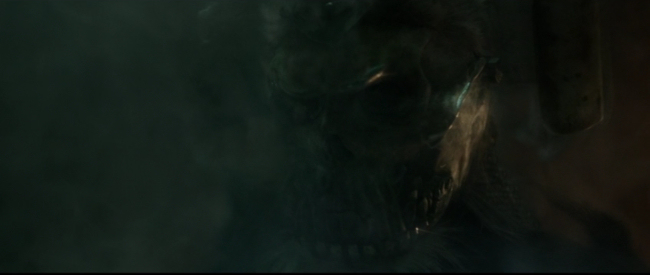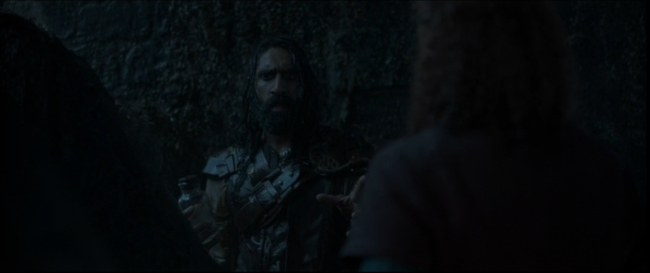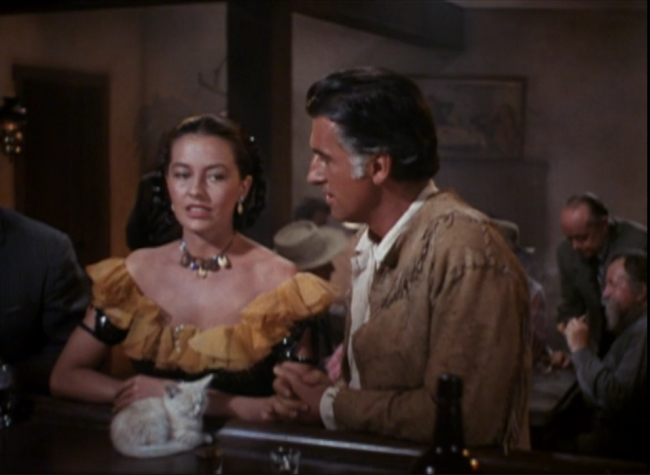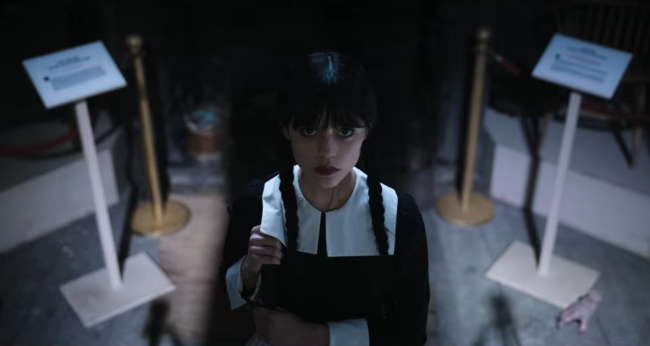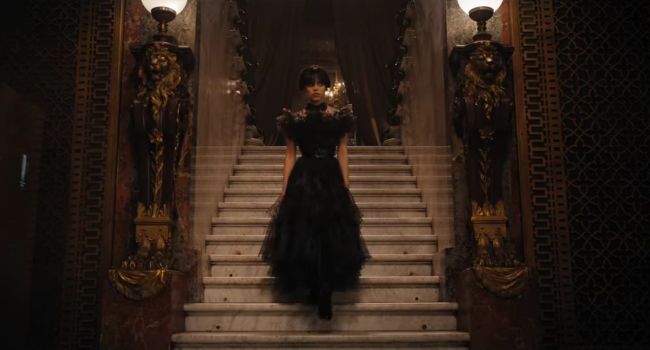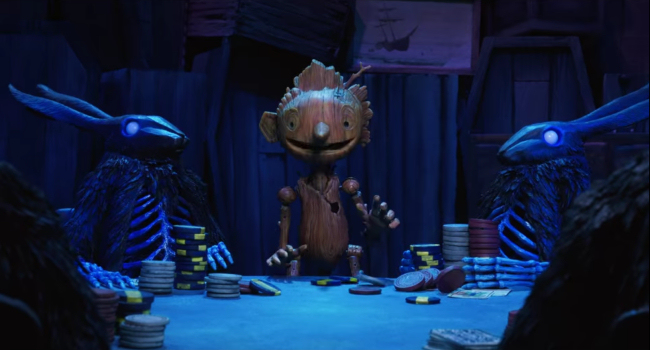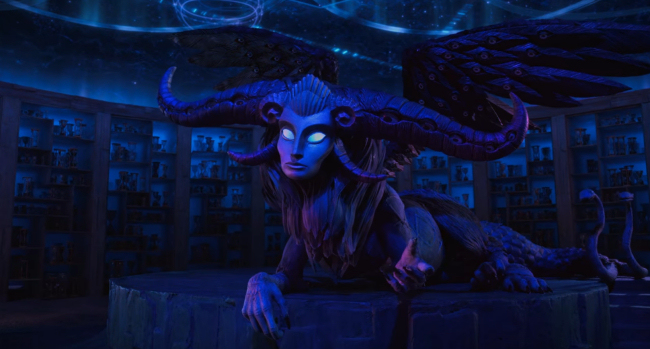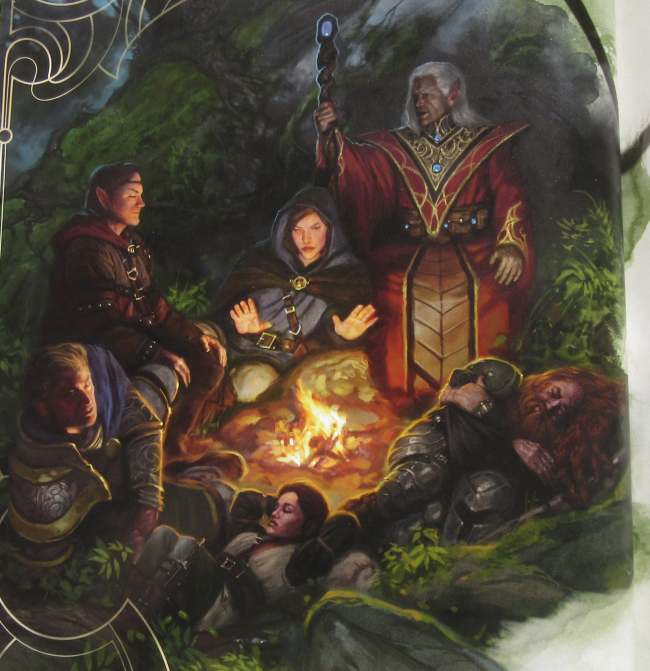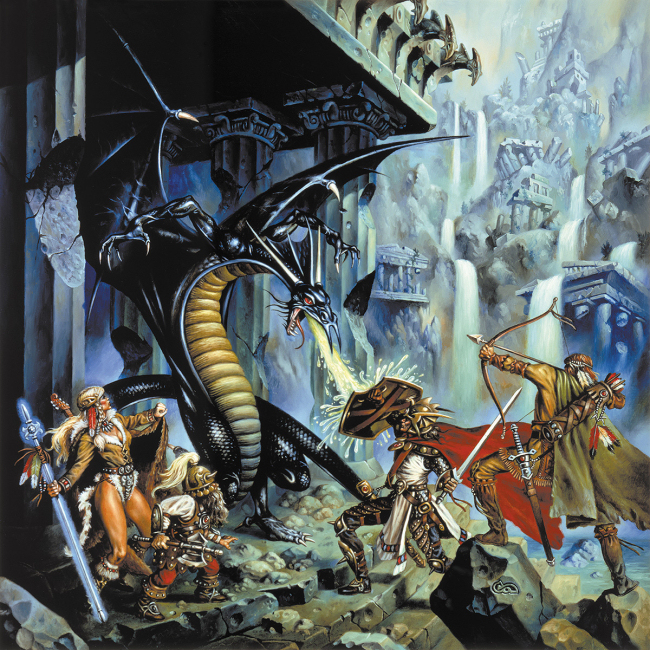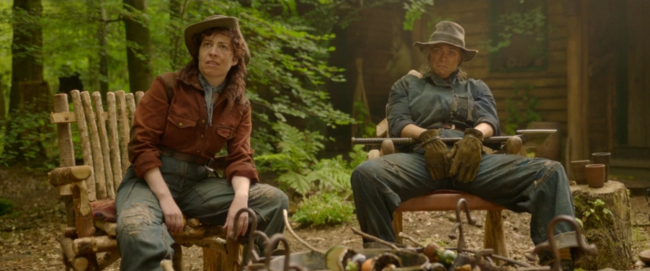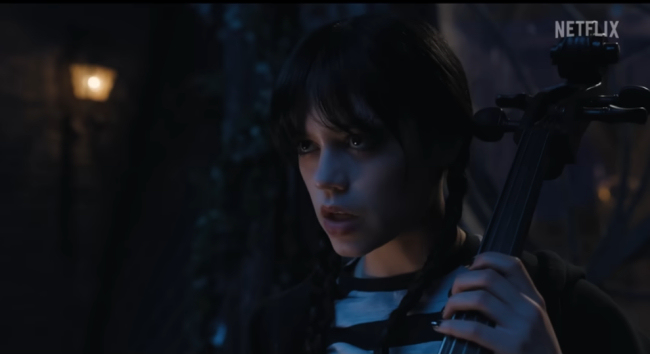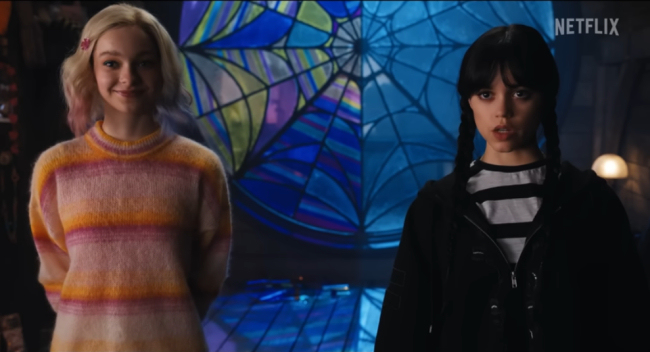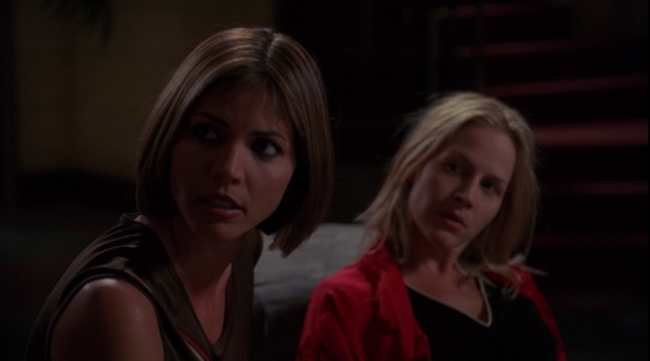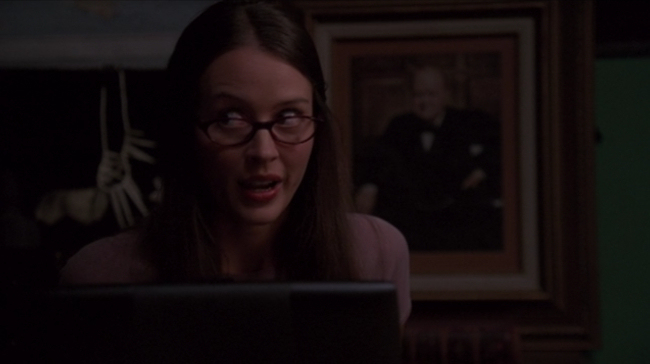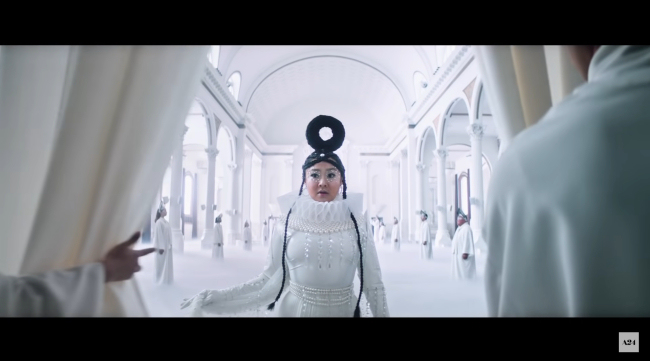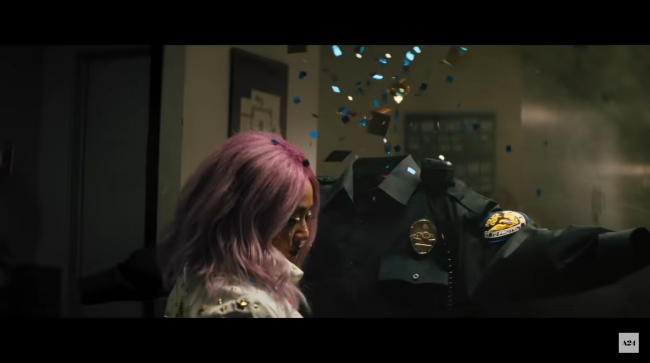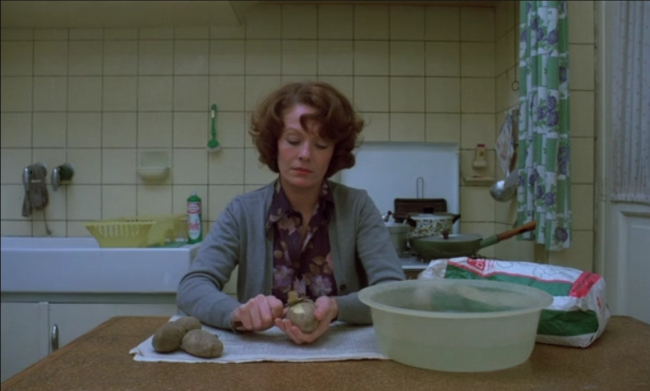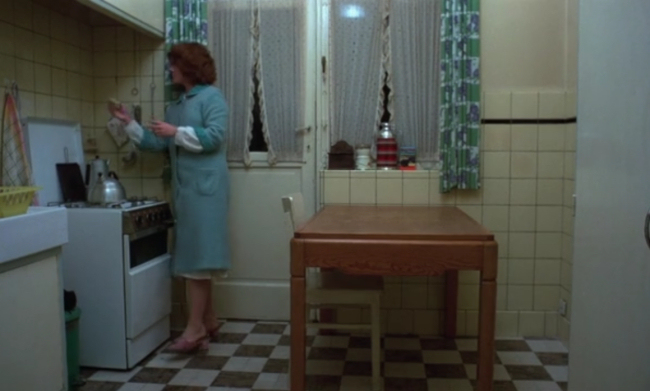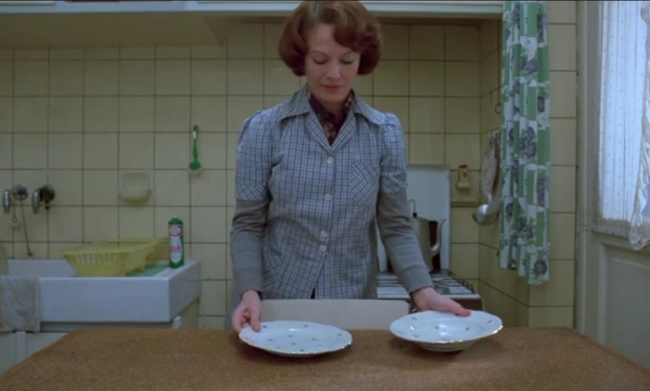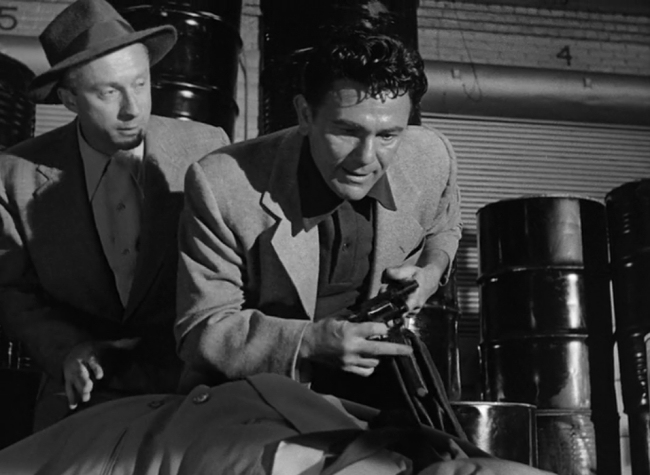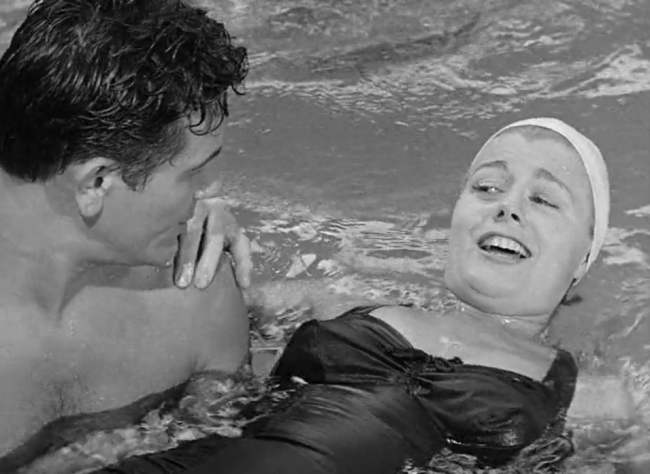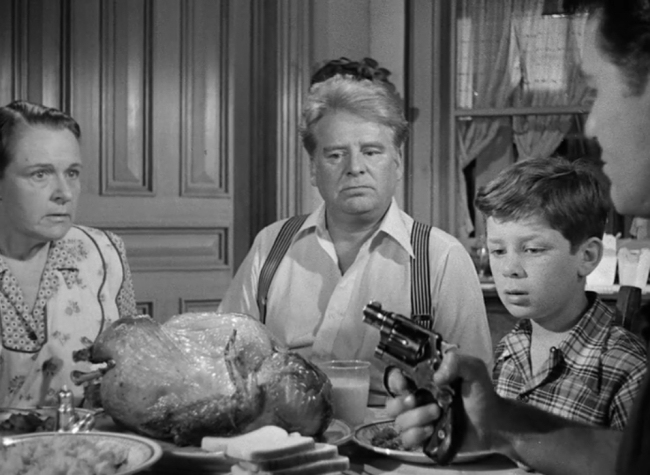
These are two of the images I got when I typed "Elf warrior princess" in NightCafe, the AI art generator site. I'm not impressed, though maybe it's better than my own art.

Certainly it looks like more work went into the shading in the AI art and there are no black contours. Pretty good for something generated in three seconds.
When I went to NightCafe this morning, it was with the intention of seeing if it could reproduce my art so the first thing I typed in was actually "Sexy elf warrior princess" but NightCafe said "Sexy" was a prohibited term. Of course it is.
Then my puerile little brain took up the challenge. Can I force it to give me nudity? I had four credits left to spend before I had to create a login so I chose my words carefully.
First I tried simply "Lady Godiva" and all I got was this:

Uncultured mechanical brute!
Okay, what about "Elf maiden bombshell"?

I'm definitely not feeling threatened.
Then I got a bingo:

Nevermind it looks nothing like James Gurney's art. I got a nipple!

There was nothing in my prompt about crotchless panties. NightCafe, you pervert!
Should artists feel threatened? Absolutely. Even if it's not good at replicating a specific style, it certainly can make to order an oil painting in two seconds. If you don't particularly care what style it imitates and you're flexible on the fine details, this is a more than adequate substitute for a hack job.
Am I worried about AI art imitating my art? Nope. Who the hell would want to imitate my lousy art? If I can speak honestly about myself for a moment without making you cringe, I don't think the value in my art is in my skill to replicate reality or to conform to a marketable or academically respectable style. No artist, AI or human, can produce what I need to express my ideas better than I can. For the simple reason that I'm me and they're not. Ideas are more than intellectual concepts reducible to thirty or so words of text. Even something like a haiku, if it's good, is bigger than its character count because it relies on insight, drawing out shades of reference in precisely placed ambiguities. An AI can't reproduce that because it doesn't understand the human mind. It might be good for scientifically accurate illustrations, but for art, which is fundamentally an act of communication, it would need to have something to communicate first.
It doesn't surprise me that AI art is winning prizes, though. Some fine art does require a cultivated eye to interpret, a concept that has been systematically devalued in the humanities over the past few decades. So academia has fallen back continually on the mathematically provable rather than place faith in the treacherous mysteries of the human heart, any product of which can always be interpreted as shameful or blasphemous at a later date.
This is like when photography was invented in the 19th century and people said, "What's the point of paintings now?" And the Impressionists said, "Here's the point." It's the human soul transplanted to the canvas and it wasn't exactly a new invention. Photography hasn't replaced Rembrandt and AI art hasn't replaced Rembrandt, either. This is a call for artists to show what they can do that computers can't--or, to put it more precisely, it's a call for artists to remember what they always did best, the thing that made them artists and not machines.

